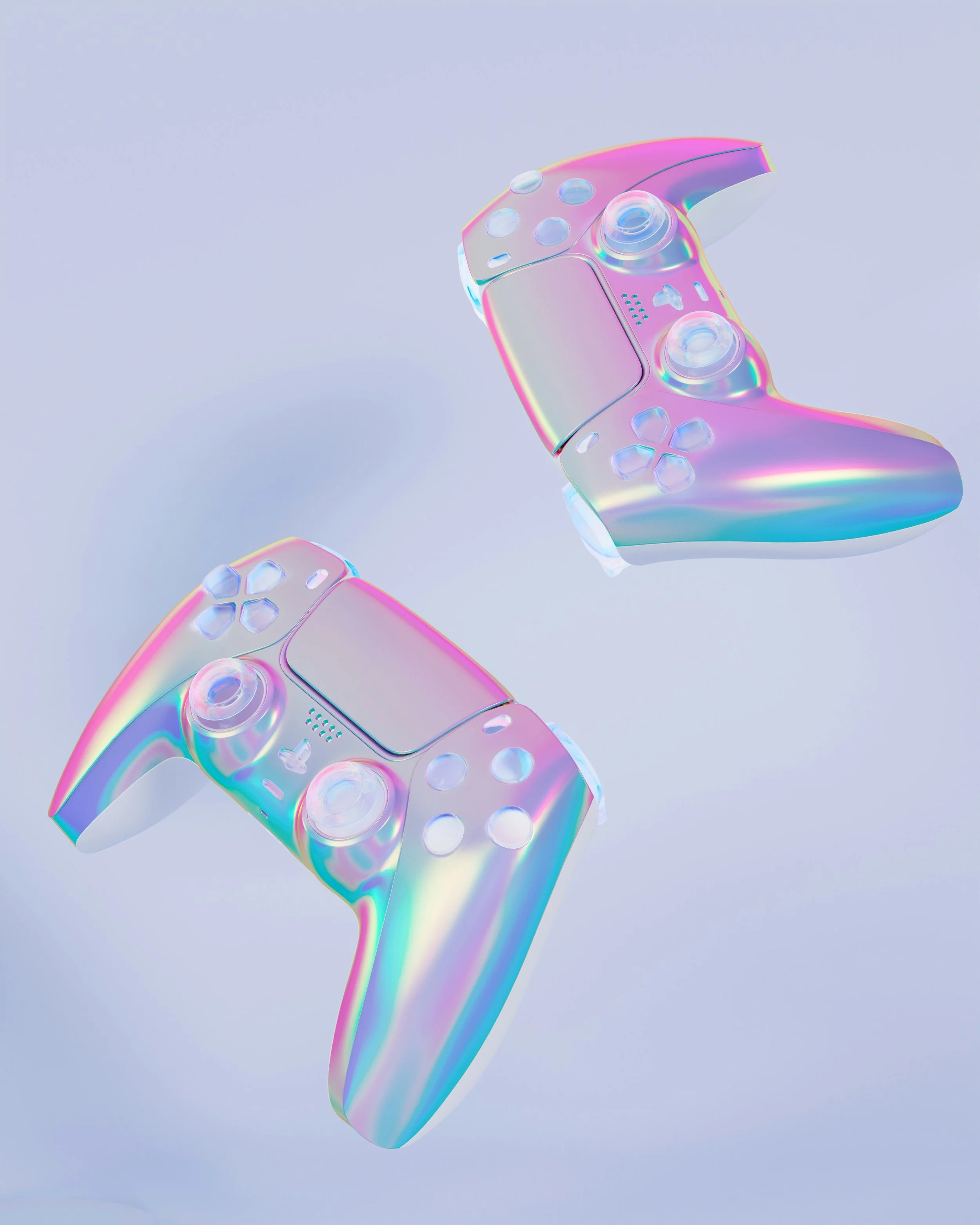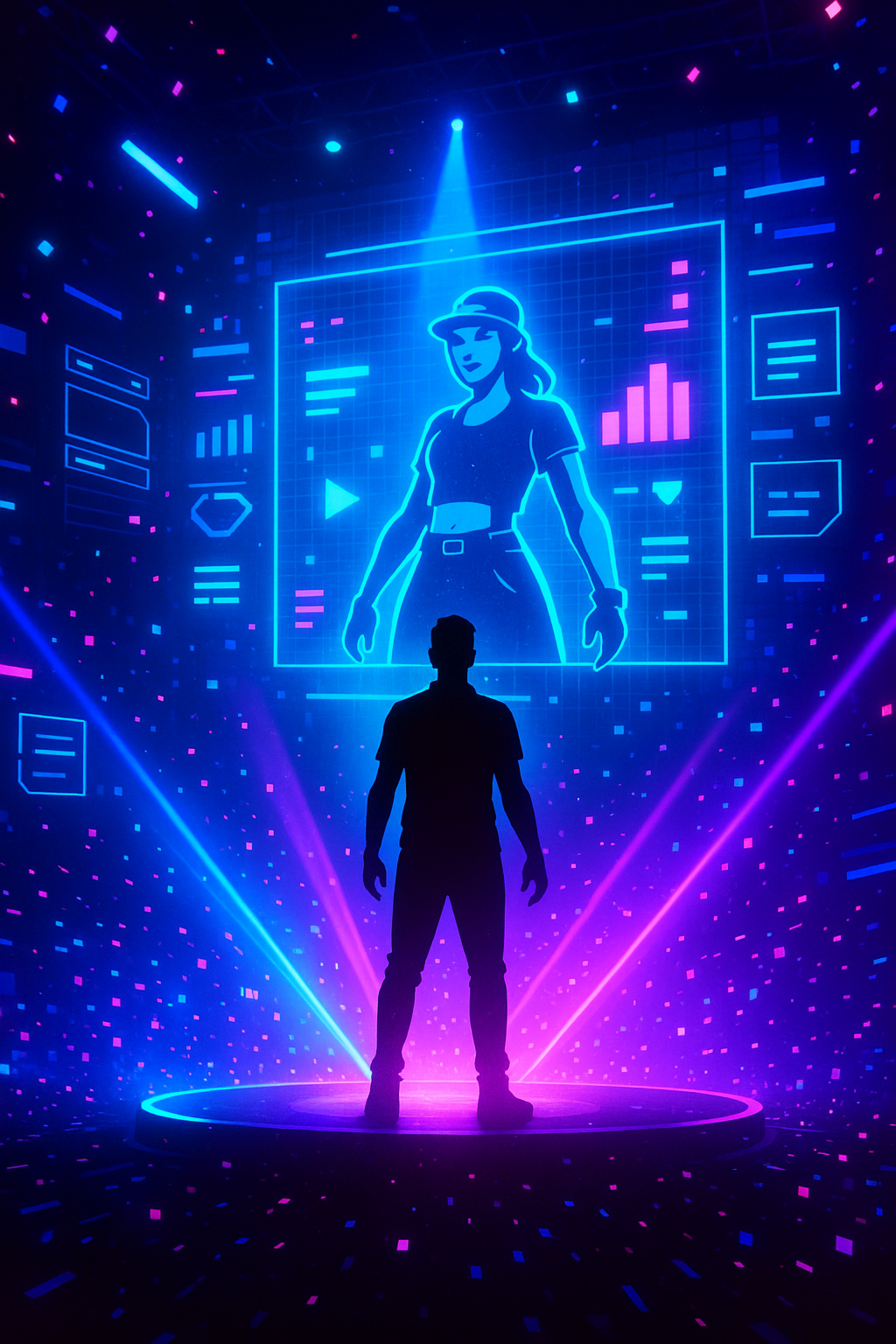Are Video Games the New Marketing Frontier? Skins, Streams, and Spectacle
Written by Aliya Banks | Category: Marketing, Pop Culture, Digital Media | 8 Minute Read
SKINS:🎮
"Dad, can I get some V-Bucks? Dad, can I get some V-bucks for Fortnite? There's this new skin I wanna get. Can I? Pleeeeease?"
Those were the pleas of an 11-year-old boy. Plea’s from my friend’s son before I started playing more consistently, before I understood what his longing was even about.
He gave in and eventually bought his son a V-Bucks card, the in-game currency you buy with real money, to get cosmetics for the sheer aesthetics of the game.
His response before caving in was always, "I'm not spending money on skins that don't even help you win the game!"
Skins and the characters they represent in a game have always been crucial. They set the tone of a game, but as any die-hard gamer will tell you, it's not about the skins but the game itself. It's about the mechanics, the story, the creativity of a new fantastical world, and even the lore.
Now?
You check in with fellow players and favorite creators to see when’s the next virtual concert or live event.
You could be playing Apex, the next minute, Post Malone is leading you through a limited-time event that feels more like a movie trailer than a match, or get shot by Nicki Minaj in Call of Duty.
Fortnite drops Doja Cat. Roblox drops entire brands. Pop culture isn’t collaborating with games. It’s moving inside of them.
And that shift says more about the future of marketing and entertainment than we realize.
As a daily gamer, I get it now. Little Mikey wasn’t wrong.
Gaming has become the largest entertainment platform in the world. A 2024 Newzoo report found that 3.4 billion people play video games worldwide, outearning both music and movies combined.
The Fortnite/Travis Scott event boasted a staggering 12.3 million viewers, all in-game watching the concert at the same time on April 23, 2020, and more than doubled its viewership to 27.7 million throughout all its showings.
Fact: Artist don't make the bulk of their money from music sales. So when you see Snoop or Ariana Grande appear in a video game, know that it is strategic marketing done to get eyes on their brand and stay top of mind.
Video games have quietly become the largest cultural billboard. The attention of Gen Z and Alpha is unmatched on these platforms, especially when they don't watch TV and ignore ads.
There's built-in fandom and a social media frenzy when collabs happen. Old players return out of curiosity. New ones join to see the hype.
Travis Scott saw a 136% increase in his track streams. Fortnite reports streaming surges after in-game collaborations. Epic and Disney announced a $1.5 billion partnership in 2024 that rocked the industry. There's merch and IP licensing to the advantage of gaming studios. Engagement soars and revenue spikes for artists. It's a win/win all around.
But that brings us to the real question:
Are artist losing their authenticity or are they simply using gaming to stay ahead of the curve?
STREAMS:🎮
The music industry has all but collapsed on itself. Gone are the days of seeking out a record deal, hoping to get discovered. Branding yourself is the way for any artist to be 'seen'.
The gaming industry is the new hype machine. It’s where soundtracks to music you never knew you loved live. Video games have become the new place to discover music.
TikTok leads the way in that arena with viral dances, a resurgence of old school tunes, or the hottest songs, then it's back to the game. Music gets featured, and the new dance becomes the new emote.
It's the loop that moves culture.
As part of Fortnite's end to its second mini season, 'Remix' that featured Snoop Dogg, Eminem, and Ice Spice, they reverently paid homage to JuiceWRLD with a live event.
Immortalized in a skin to celebrate his life, over 14 million concurrent players logged in to receive his free skin, to hear his music, and see one of his last videos.
Long-time fans of his music got to be in his presence, in a digital space, and newcomers got to meet him for the first time.
It was a cultural moment forever stamped in the minds of the millions who got to experience this once-in-a-lifetime showing in a video game.
That's the power of transmedia integration.
SPECTACLE:🎮
Where is the future of entertainment heading?
Honestly—we’re looking at it. In real time.
We’re in a new era, exploding with billion-dollar partnerships and millions of gamers invested in what’s coming next.
But it's not all IP synergy and giggles.
With live events literally taking center stage on our favorite games, what happens to the little gaming studio? Will they lose potential customers or a fanbase at the cost of trying to keep up with giants like Disney and Epic, who are creating entertainment ecosystems?
Many gamers feel these crossovers cheapen the authenticity of games. The lore is lost. Epic storytelling, the likes of The Last of Us may just turn out to be a lost art.
What does this evolution look like long-term?
The truth is, we’re somewhere in the middle of it all—caught between innovation and over-commercialization, between artistic evolution and brand-driven spectacle.
Gaming is becoming the new cultural center, whether we’re ready for that shift or not.
And as these worlds continue to merge, we’re all going to have to decide what we value most: the purity of the game, the thrill of the spectacle… or the strange, fascinating place where both can coexist.


